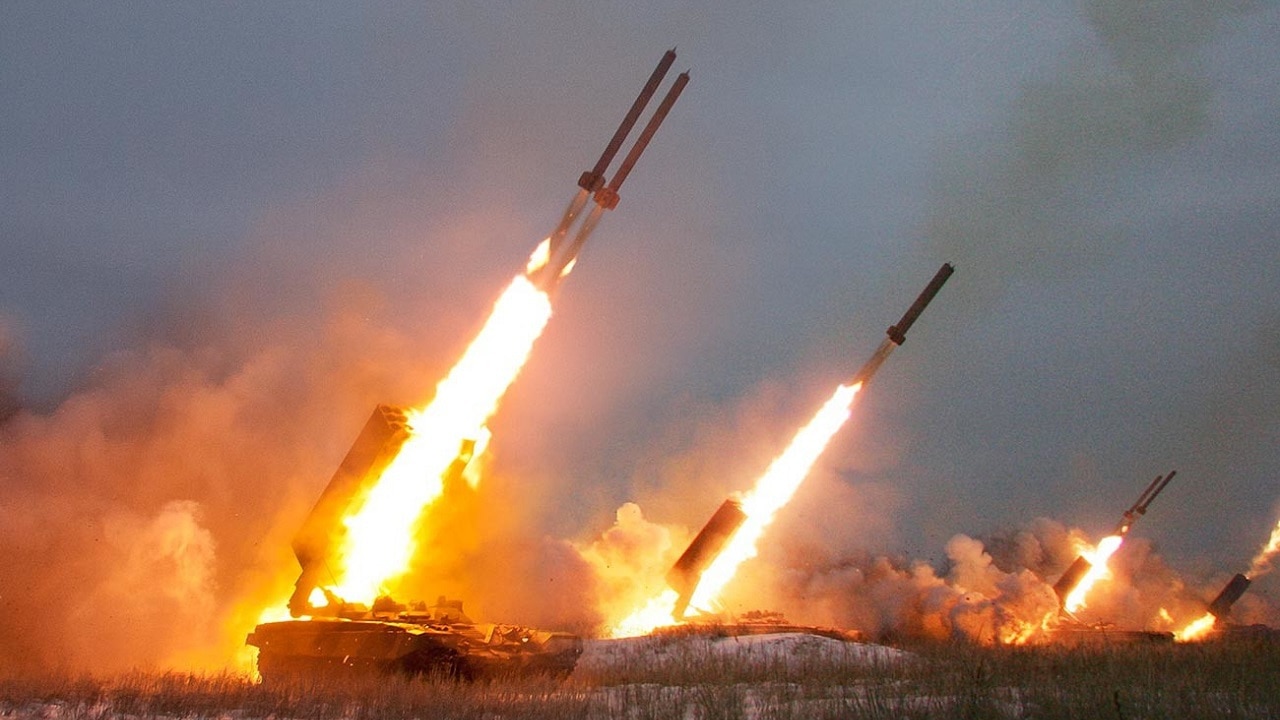The Biden administration’s decision to send cluster munitions to Ukraine is legally correct. After all, neither the United States nor Ukraine are parties to the treaty banning them. Still, alternatives exist, such proximity fuze artillery or alternative warheads that spread tungsten shrapnel.
This makes the provision of cluster munitions poor policy given the tremendous reputational damage that the United States will suffer.
In effect, National Security Advisor Jake Sullivan’s defense of cluster munitions for Ukraine is the Biden administration’s equivalent of the George W. Bush administration’s decision to detain suspected Al Qaeda terrorists in Guantanamo Bay as “illegal combatants.” It may be legal, but it is unwise.
European leaders have not been shy in their criticism of the U.S. move. British Prime Minister Rishi Sunak used a meeting with President Biden prior to the Vilnius Summit to double down on his opposition to cluster munitions. Tobias Ellwood, a conservative member of parliament, its defense committee chairman, and former foreign affairs minister, tweeted, “This is the wrong call – and will alienate international good will. Their use leaves deadly unexploded ordnance over the battlefield – killing & injuring civilians long after the war is over.” Rachel Reeves, Labour’s shadow chancellor, agreed. She expressed “deep concern” about the decision and said she was “not convinced that these are the appropriate weapons.”
Britain’s Incredible Hypocrisy
The hypocrisy of British leaders is stunning. In 2020, Azerbaijan used cluster munitions against civilians in a war of aggression directed at the Armenian-populated enclave of Nagorno-Karabakh. The United Kingdom was largely silent. At the time, concerns about human rights took a back seat to more practical economic concerns. Azerbaijan is a partner to BP (British Petroleum now goes only by its initials), which has large stakes in its Caspian energy resources.
Azerbaijani President Ilham Aliyev has grown erratic. Freedom House ranks Azerbaijan not only as “not free” but also among the worst of the worst. Its freedom ranking as equivalent to China or Burma under the military junta. It receives a lower freedom ranking than the Hamas-ruled Gaza Strip, the Islamic Revolutionary Guard Corps-dominated Iran, Communist Cuba, and even Russia. Yet, because of the British Petroleum interest, the United Kingdom often uses its UN Security Council veto to, alongside Russia, protect Aliyev from the consequences of his actions.
Speaking before the European Azerbaijan Society, for example, Ellwood, for example, has stated, “Azerbaijan is a key player in the energy world and is a strategic energy partner for the UK and the rest of the EU. The development of the Shah Deniz field and construction of the Southern Corridor to Europe is something that we all welcome and fully support. We appreciate that energy security benefits the entire EU. The UK is the largest FDI [Foreign Direct Investment] contributor to Azerbaijan, and there is opportunity to further demonstrate our commitment to the country with more frequent visits by Ministers and even the Prime Minister, bringing political engagement of the highest level.”
After Azerbaijan used cluster munitions, Ellwood was silent. Reeves is not on record with Ellwood’s Azerbaijan effusiveness but she too remains silent in the face of Azerbaijan’s use of cluster bombs. In March 2023, meanwhile, Sunak sent a letter to be read at Azerbaijan’s 10th Global Baku Forum declaring, “Great Britain will be the main partner of Azerbaijan in the transition to green energy.” As chancellor of the Exchequer during the second Nagorno-Karabakh War, he was silent as Azerbaijan used cluster bombs.
Perhaps the White House should not send cluster bombs to Ukraine, but British handwringing is cynical. After all, when Ukraine seeks cluster bombs to dislodge Russian troops dug into trenches in its own territory, it is vocal, but when the Azerbaijani dictatorship drops them on civilian villages in a dispute that Azerbaijan committed in writing to resolve diplomatically, British officials are silent.
The hypocrisy is both stunning and shameful. For British officials across the political spectrum, concerns appear less humanitarian and colored more by who gifts caviar, offers junkets, and might offer large speaking fees or post-government consulting contracts.
Now a 19FortyFive Contributing Editor, Dr. Michael Rubin is a Senior Fellow at the American Enterprise Institute (AEI). Dr. Rubin is the author, coauthor, and coeditor of several books exploring diplomacy, Iranian history, Arab culture, Kurdish studies, and Shi’ite politics, including “Seven Pillars: What Really Causes Instability in the Middle East?” (AEI Press, 2019); “Kurdistan Rising” (AEI Press, 2016); “Dancing with the Devil: The Perils of Engaging Rogue Regimes” (Encounter Books, 2014); and “Eternal Iran: Continuity and Chaos” (Palgrave, 2005). The views expressed in this opinion piece are the author’s own.

